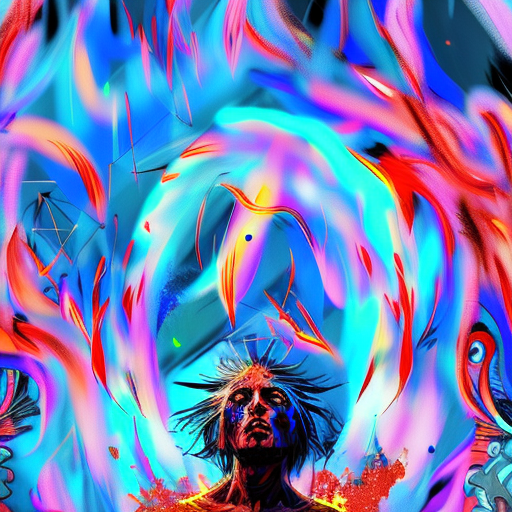Summary:
Howl and Other Poems is a collection of poems by Allen Ginsberg that explores themes of counterculture, sexuality, and the human condition. Through his raw and unfiltered verses, Ginsberg captures the essence of the Beat Generation and challenges societal norms. The collection, which includes the iconic poem “Howl,” is a powerful and influential work that continues to resonate with readers today.
Exploring the Human Condition:
Ginsberg’s poems in Howl and Other Poems delve deep into the human condition, examining the struggles, desires, and complexities of existence. He explores themes of alienation, madness, and the search for meaning in a society that often feels oppressive and stifling. Ginsberg’s raw and emotional language allows readers to connect with the universal experiences of pain, longing, and the quest for self-discovery.
In “Howl,” the centerpiece of the collection, Ginsberg presents a vivid and unapologetic portrayal of the Beat Generation and their struggles against conformity. The poem is a passionate and frenzied outcry against the dehumanizing effects of capitalism, consumerism, and the rigid social structures of the time. Through his vivid imagery and stream-of-consciousness style, Ginsberg captures the essence of rebellion and nonconformity that defined the Beat movement.
Sexuality and Liberation:
Sexuality is a prominent theme throughout Howl and Other Poems, with Ginsberg exploring both personal and societal attitudes towards sex. He celebrates the freedom of sexual expression and challenges the prevailing moral and social norms of the era. Ginsberg’s explicit and provocative language, which was considered scandalous at the time, seeks to break down barriers and promote a more open and accepting society.
In “A Supermarket in California,” Ginsberg imagines a surreal encounter with the poet Walt Whitman in a supermarket. The poem is a reflection on the loss of Whitman’s idealized America and the stifling conformity of the present. Through this encounter, Ginsberg explores his own identity as a gay man and his longing for a more liberated and inclusive society.
The Power of Poetry:
Howl and Other Poems is a testament to the power of poetry as a means of self-expression and social commentary. Ginsberg’s poems are characterized by their raw emotion, vivid imagery, and unfiltered language, which serve to challenge and provoke readers. His work embodies the spirit of the Beat Generation and their rejection of mainstream society, embracing a more spontaneous and authentic approach to art.
Ginsberg’s use of long, breathless lines and repetition creates a sense of urgency and intensity in his poems. He employs a free verse style, rejecting traditional poetic structures and embracing a more fluid and organic form. This experimental approach to poetry was groundbreaking at the time and continues to inspire generations of poets.
Key Takeaways:
- Ginsberg’s Howl and Other Poems is a powerful collection that explores themes of counterculture, sexuality, and the human condition.
- The poems delve deep into the struggles and desires of the human experience, challenging societal norms and advocating for personal freedom.
- Ginsberg’s raw and unfiltered language, along with his experimental poetic style, make his work a defining piece of Beat Generation literature.
“I saw the best minds of my generation destroyed by madness, starving hysterical naked…”
In Howl and Other Poems, Allen Ginsberg captures the essence of the Beat Generation and their rebellion against societal norms. Through his raw and unfiltered verses, he explores themes of counterculture, sexuality, and the human condition. Ginsberg’s poems challenge the dehumanizing effects of capitalism and conformity, celebrating the freedom of sexual expression and advocating for personal liberation. Howl and Other Poems is a testament to the power of poetry as a means of self-expression and social commentary, and it continues to inspire readers to question the status quo and embrace their authentic selves.












